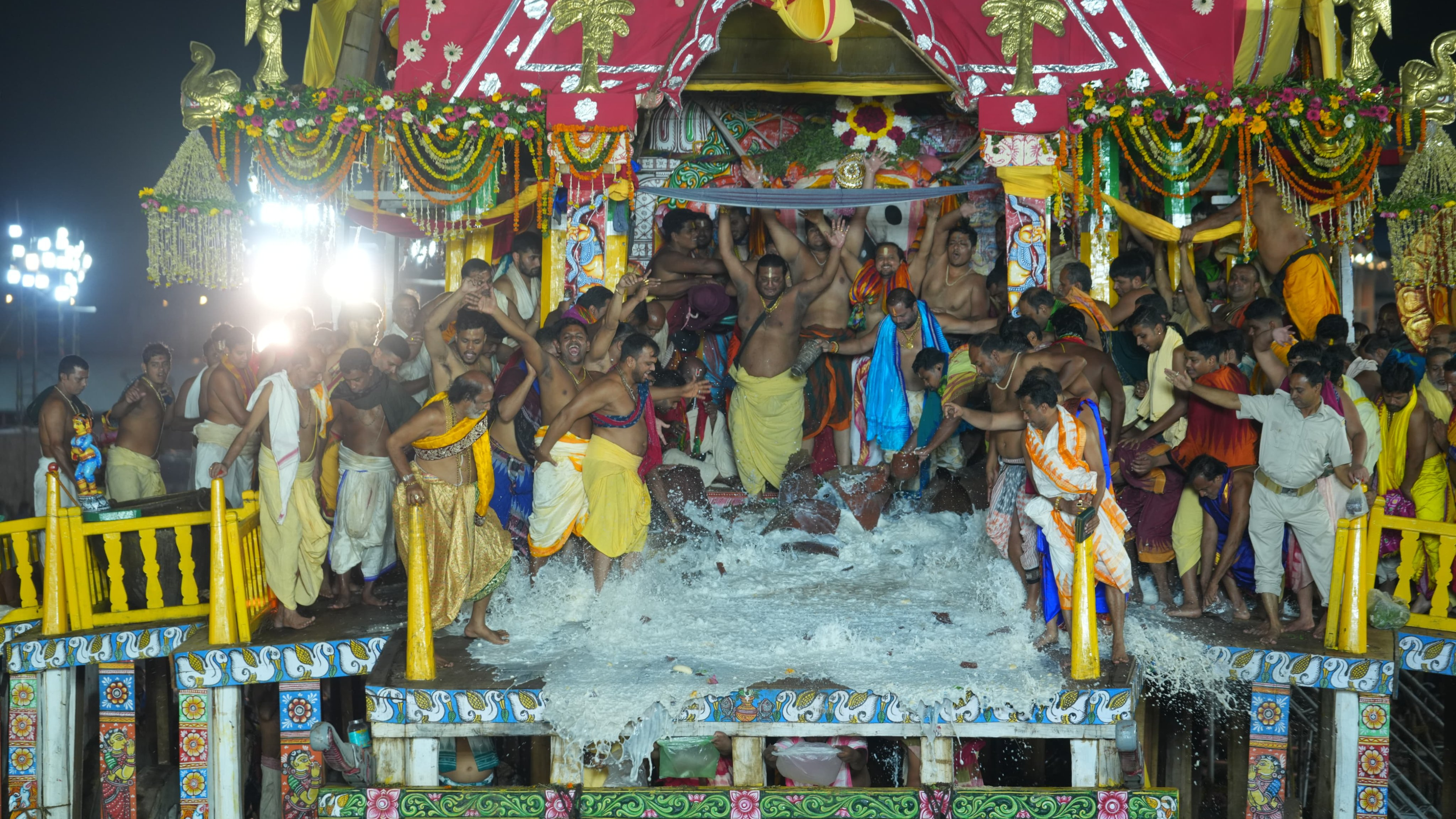

Puri, July 7: The Adhara Pana ritual — a significant offering to Lord Jagannath, Lord Balabhadra, and Devi Subhadra — was performed on the chariots near the Singhadwara (Lion’s Gate) of the Srimandir in Odisha’s Puri this evening.
This sacred ritual features offering a special sweet drink called ‘Pana’ to the holy trinity in nine uniquely designed cylindrical earthen pots placed near the lips of the deities on their respective chariots. This unique practice gives the ritual its name — ‘Adharapana’.
The special sweet drink was prepared by churning together ingredients such as cheese, milk, sugar, bananas, camphor, nuts, black pepper, and extracts from holy basil leaves.
The Mahasuar servitors of the temple prepared the sacred drink by mixing the mentioned ingredients with holy water drawn from a well located in front of the Chhauni Mutt near the Lions’ Gate of Srimandir.
Rituals on the three chariots were performed by the Patribadu, Suarbadu, and Garabadu servitors. The Palia Pujapanda servitors then offered the prepared drink to the deities.
Following the Bhog offering, the earthen pots were broken in front of the deities, allowing the drink to spill over the chariots.
It is believed that this spilled drink is meant for the subsidiary deities present on the chariots, as well as for appeasing evil spirits and ghostly entities.
In keeping with tradition, devotees are strictly forbidden from consuming the Adharapana.
A sea of devotees gathered along the Grand Road in the holy town to witness the sacred ritual.
According to traditional scriptures, the Adhara Pana ritual is ideally conducted on Dashami Tithi after the chariots arrive at the Singhadwara. However, due to time constraints, it is often observed on Ekadashi or Dwadasi Tithi. This year, the ritual will be performed on Dwadasi, with a total of nine earthen pots used—three placed on each of the three chariots, one for each deity.
In earlier times, the special drink was offered to the deities in 12 pots—three on Bahuda Dashami, three on Ekadashi, three on Dwadasi, two for Ram and Krishna on Lord Balabhadra’s Taladhwaja chariot, and one for Madan Mohan on Lord Jagannath’s Nandighosa chariot.
In recent years, however, the ritual has been simplified, with the drink now offered in nine pots—three for each deity—on a single day.